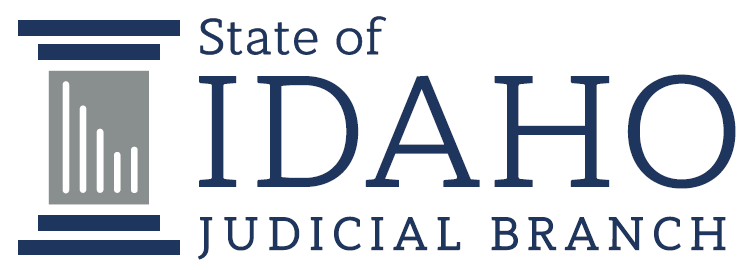From the Courts: Highlights of Rule Amendments for 2023
Lori A. Fleming
Staff Attorney and Reporter
Idaho Supreme Court Rules Advisory Committees

The following is a list of rule amendments approved by the Idaho Supreme Court between July 2, 2022, and May 1, 2023. Please note that additional amendments may have been approved after this article was submitted for publication on May 1, 2023. Refer to the Idaho Supreme Court website for an up-to-date list of orders amending the Idaho Court Rules. See http://www.isc.idaho.gov/recent-amendments. Also, be sure to check the Idaho State Bar weekly E-Bulletin for your chance to comment on any future proposed amendments before they are adopted.
Idaho Court Administrative Rules
Rule 32. Judicial Records Exempt from Disclosure. Idaho Court Administrative Rule 32(g) identifies a number of judicial records that are exempt from public disclosure. There have been two recent amendments to this rule. First, an April 1, 2023 amendment added new subsection (g)(29), which exempts from public disclosure “Pending grant applications and attachments submitted to the Guardian Ad Litem Grant Review Board for consideration of grant funding authorized under Title 16, Chapter 16 Idaho Code.” The new subsection clarifies that, once a grant application has been approved and grant funds have been awarded, the application and attachments are no longer exempt. Second, a May 1, 2023 amendment to subsection (g)(10) deleted the general reference to “Mental commitment case records” and more specifically identified the exempt records as “All records of proceedings relating to hospitalizations pursuant to Idaho Code sections 66-326, 66-329, 66-406, 16-2413, and 16-2414.”
Rule 43a. Administrative Conference. Until recently, the Administrative Conference was required to meet four times each year, or according to such other schedule as the Administrative Conference may adopt. Effective April 10, 2023, subsection (b) of Idaho Court Administrative Rule 43a was amended to provide that the Administrative Conference shall meet three times each year, or according to such other schedule as may be determined by the Idaho Supreme Court.
Rule 45. Cameras in the Courtroom. Idaho Court Administrative Rule 45 governs the use of cameras and other audio/visual equipment in the courtroom during trial court proceedings. The rule was amended on January 9, 2023. Some parts of the rule were reworded and reorganized, but no significant substantive changes were made.
Rule 46a. Cameras in the Supreme Court Courtroom. Idaho Court Administrative Rule 46a governs the use of cameras and other audio/visual equipment in the courtroom during proceedings before the Idaho Supreme Court and Idaho Court of Appeals. Effective January 9, 2023, the rule was amended to clarify that approval to video record or photograph a Supreme Court or Court of Appeals proceeding must be obtained from the Chief Justice of the Supreme Court or the Chief Judge of the Court of Appeals at least one business day in advance of the hearing. Pursuant to the amended rule, the requirement for advance approval does not apply to the live broadcast of Supreme Court proceedings provided on an ongoing basis by Idaho Public Television/Idaho In Session. Additionally, the amended rule states that preference will be given to restricting live coverage of Supreme Court proceedings to the Idaho Public Television broadcast, and that Idaho Public Television will provide a video and audio feed to other media. Finally, the amended rule incorporates the I.C.A.R. 45 guidelines relating to equipment, dress, pooling of coverage, limits on coverage, and other matters that are relevant to appellate proceedings.
Rule 46b. Cameras in Courtroom During Terms of Court Outside of Boise. Idaho Court Administrative Rule 46b governs media coverage of Supreme Court and Court of Appeals proceedings held outside of the Supreme Court courtroom. The January 9, 2023 amendments to this rule largely mirror the amendments to I.C.A.R. 46a. Specifically, amended Rule 46b requires individuals wishing to video or photograph proceedings to obtain approval at least one business day in advance of the hearing; states that the advance approval requirement does not apply to live broadcast of Supreme Court proceedings provided on an ongoing basis by Idaho Public Television/Idaho in Session; and incorporates the I.C.A.R. 45 guidelines relating to equipment, dress, pooling of coverage, limits on coverage, and other matters that are relevant to appellate proceedings.
Rule 62(c), Appendix A. Juror Questionnaire. The “Disqualification” section of the Juror Questionnaire contained in Appendix A to Idaho Court Administrative Rule 62(c) was amended on March 9, 2023. The disqualification criteria were reworded and reorganized, but no substantive changes were made.
New Rule 100. Procedural Rules for Mental Commitments. On May 1, 2023, the Court adopted new Idaho Court Administrative Rule 100. The new rule sets forth the procedures that must be followed in mental commitment cases. Subsection (a) of the rule states that, whenever a person is taken into custody or detained by a police officer or medical staff member without a court order pursuant to Idaho Code section 66-326(1) or Idaho Code section 16-2413, the prosecuting attorney must electronically file the evidence supporting the statutory basis for the detention within 24 hours of the time the person was placed in custody or detained. Subsection (b) of the rule states that, whenever the court issues a temporary custody order and requires examination by a designated examiner, the designated examiner has 24 hours from the examination to report his/her findings to the prosecuting attorney who, in turn, has no more than 24 hours to file such findings with the court.
Idaho Criminal Rules
Appendix A. Guilty Plea Advisory Form. Paragraph 18.b of the Guilty Plea Advisory form found in Appendix A of the Idaho Criminal Rules erroneously stated that a defendant pleading guilty pursuant to a binding plea agreement will be allowed to withdraw his/her plea and proceed to a jury trial. Effective January 27, 2023, paragraph 18.b was corrected to state that a defendant pleading guilty pursuant to a binding plea agreement will not be allowed to withdraw his/her plea and proceed to a jury trial.
Idaho Misdemeanor Criminal Rules
Rule 13. Misdemeanor Bail Bond Schedule. The Misdemeanor Bail Bond Schedule found in Idaho Misdemeanor Criminal Rule 13(b) is divided into a number of different offense categories (e.g., motor vehicle offenses; license, registration, and insurance offenses; fish and game offenses; etc.). In 2022, a generic “Other” designation, with an accompanying default bond amount of $300, was added to the end of each offense category. The purpose of the “Other” designation is to account for any offenses that fall within an offense category but that are not specifically listed in the bail bond schedule. Effective January 4, 2023, the “Other” designation and default $300 bond amount included at the end of the Fish and Game offense category was removed because it conflicted with the prefatory language of I.M.C.R. 13(b)(5), which states that the amount of bail for any alleged fish or game offense not specifically listed in the bail bond schedule “shall be the sum of $191.00.”

Lori A. Fleming received her Juris Doctorate from the University of Idaho College of Law in 1998. After law school, she completed a two-year clerkship for United States Magistrate Judge Mikel H. Williams. Following her clerkship, she worked for almost 20 years as a Deputy Attorney General in the Appellate Unit of the Criminal Law Division of the Idaho Attorney General’s Office. She has been the Staff Attorney for the Idaho Supreme Court since September 2019.

